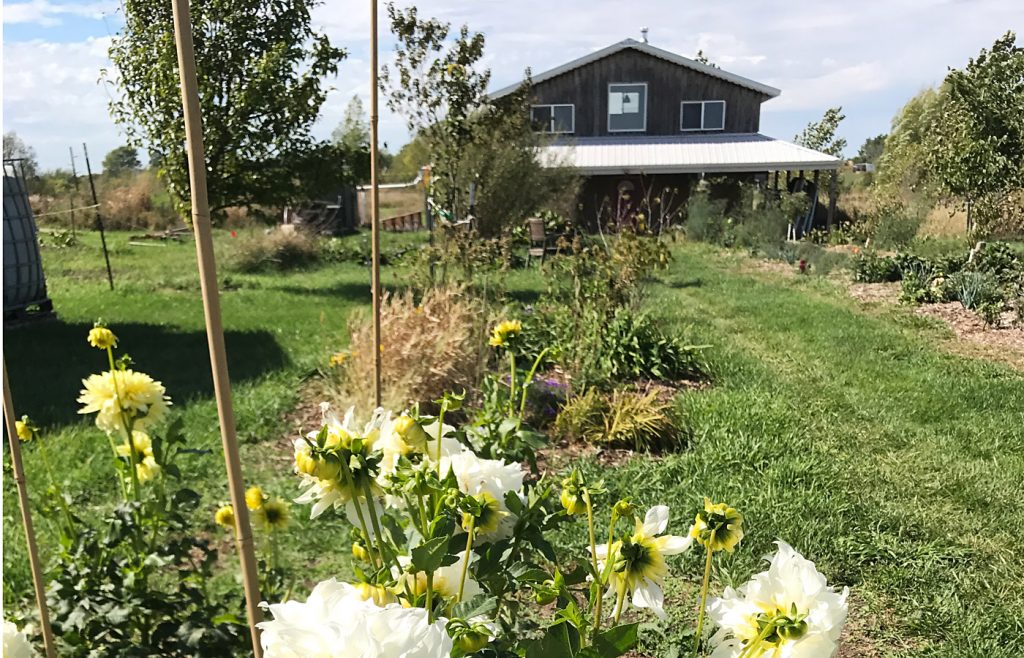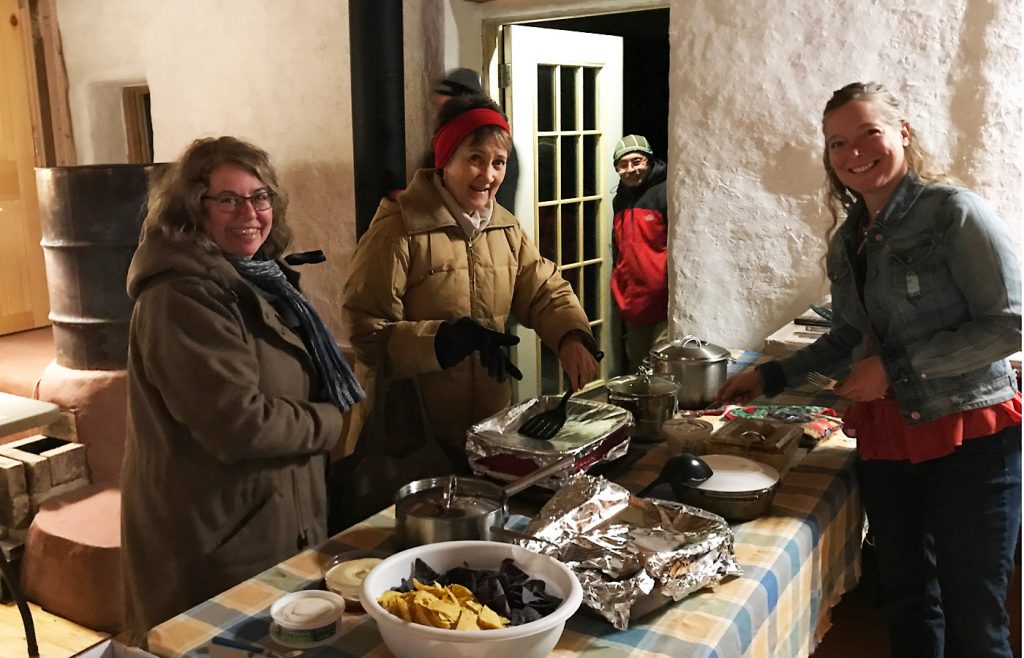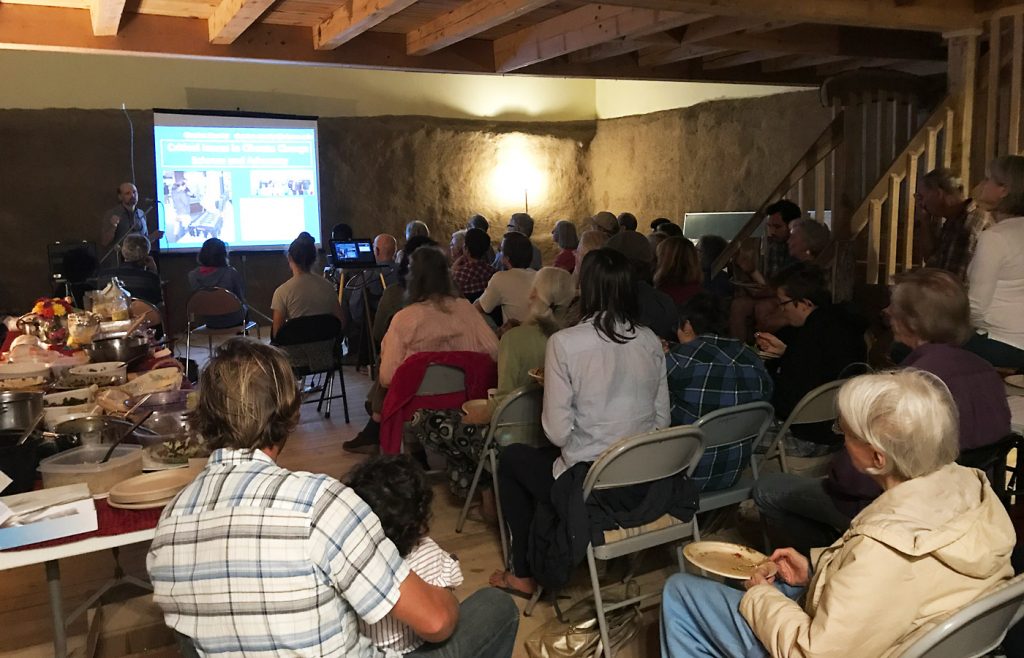
A century ago, Iowans produced as much as 90 percent of their own food. While that level of food self-sufficiency might not be a realistic goal today, Bob Ferguson, the new executive director of the Sustainable Living Coalition, thinks there’s plenty of room for a more robust local food economy. And he envisions the Sustainable Living Center as a significant factor in bringing about that change.
Based in Fairfield since 2004, the Sustainable Living Coalition (SLC) has been revitalized with its renewed commitment to developing local food systems by providing community education and networking opportunities. Popular monthly potlucks at the newly renovated SEED Center Eco Barn allow community members to connect over shared food and local music. (SEED stands for sustainable education, enterprise, and design.) Each gathering includes lively presentations and discussions on topics ranging from climate change and solar power to watershed management and food security.

The next potluck, on Thursday, February 15, will feature Tera Johnson, founder of tera’s and the Food Finance Institute, from Madison, Wisconsin.
The SLC plans to bring Johnson back to Fairfield to teach a small-business boot camp aimed at food entrepreneurs and regenerative agriculture, a system of farming that increases biodiversity, enriches soils, and supports the greater ecosystem. Johnson’s workshop is just one of many that SLC plans to offer.

“If we rebuild a truly local agricultural infrastructure,” Ferguson says, “then the economic infrastructure blooms again. Money stays in the local area and recirculates three to seven times.”
On another front, the Southeast Iowa Food Hub, a subsidiary branch of the SLC, works to connect local growers with markets in the area, for which they received a USDA grant last year. The Food Hub also matches farmers with landowners looking to lease to organic producers, and provides training and business models for conventional farmers who want to transition to organic.
Young farmers moving into organic production face challenges in figuring out how these new and unfamiliar practices can match or improve their bottom line. “One of the key services we want to offer is helping them make that transition and still be viable,” says Food Hub executive director Barbara Stone, who has an extensive background in developing local food systems. The SLC is currently fundraising for a full-time position for Stone, as well as for additional building and expansion plans, including a permaculture garden on the 12-acre SLC campus.
“We’re about connecting people locally, regionally, nationally, and internationally, providing models that work, and actively developing those connections and structures between people who want to collaborate,” says Ferguson. “We’re not just intending to use our land to grow and sell annual and permaculture crops—we’re cultivating knowledge and connection.”
Creating a vigorous local food system not only brings more self-sufficency to local economies, it also reduces reliance on our current model of food production and distribution, which expends an inordinate amount energy on transporting products around the country.
Inspired by Ferguson’s enthusiasm and business acumen, Hap and Lin Mullenneaux recently returned to the SLC board. “Bob has recharged the organization,” Hap says. Hap designed and built the beautiful new staircase in the SEED Eco Barn that leads to a loft overlooking the main floor. He’s also responsible for a majority of the building’s renovations. New wooden floors and a sleek kitchen alcove make the barn a charming new venue.
Ferguson plans to reshape the SLC campus into the Iowa regenerative agriculture version of Vancover’s Butchart Gardens. Plans include converting five acres into a “forest garden,” with beautifully landscaped trees, shrubs, and herbaceous plants.
“There’s a wonderful sense of purpose and immediacy,” Hap says of the revitalized SLC. “The dream is being fulfilled.”
For more information on the Sustainble Living Coalition’s current projects and donation opportunities, visit their website or Facebook page. The SLC is a 501(c)(3) nonprofit.
